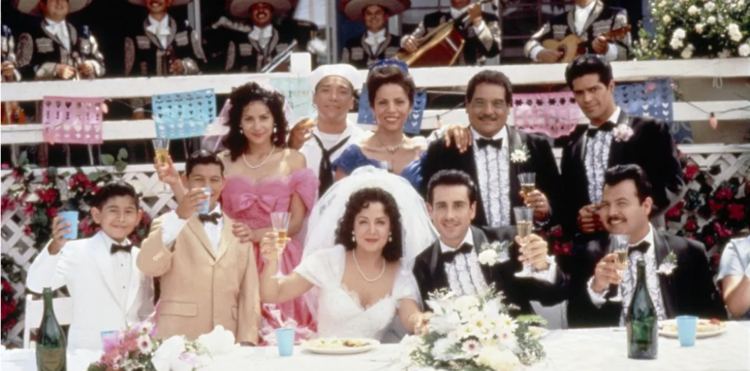
By Steve Sailer
05/30/2008
Here’s an amusing article by Hector Becerra in the LA Times about how American-born Mexican-American politicians are allowed to say in public what everybody feels in private: that Mexican immigrant neighborhoods aren’t "vibrant," they're tacky:
It was as if the developers were talking about tacos, and the Latino politicians were talking about apple pie.
Baldwin Park Mayor Manuel Lozano and other city officials listened as the developers said they had studied the demographics of the city and could bring in a retailer known for offering credit to undocumented immigrants and a shopping center with a "Latino feel."
To Lozano, it was another case of developers typecasting his suburb, which is about 15 miles east of downtown Los Angeles. He didn’t want to see more of what he calls "amigo stores."
The meeting ended like a bad date, with handshakes and excessive courtesy. But afterward, Lozano made it clear he was not happy.
"We want what Middle America has as well," said the second-generation Mexican American, recounting the meeting. "We like to go to nice places like Claim Jumpers, Chili’s and Applebee’s … . We don’t want the fly-by-night business, the 'amigo store,' which they use to attract Latinos like myself."
Call it "immigrant" store fatigue. It’s happening in cities that are overwhelmingly Latino, with Latino political leaders and with large immigrant communities.
For decades, these cities attracted working-class and immigrant-centric retailers: check-cashing businesses, Latino supermarkets, discount gift stores, bridal shops and Mexican western wear stores. Some are independent, and some are chains such as La Curacao, an appliance and electronics retailer that offers credit accounts to immigrants who lack the documentation for conventional credit cards.
Until relatively recently, cities like Baldwin Park, South Gate and Santa Ana had few options beyond "Latino" retailers. But this year, Baldwin Park — a city of 70,000 in the San Gabriel Valley — enacted a moratorium on new payday loan and check cashing stores. The city is now partners with Bisno Development Co. on an "urban village" of mixed-income housing, theaters and mainstream restaurants such as Claim Jumper, Applebee’s and Chili’s.
To make it happen, the city is considering a plan that could require the use of eminent domain power to clear a 125-acre area.
That would result in the loss of more than 80 homes and more than 100 small businesses.
The huge project has prompted charges that the City Council, composed of Mexican Americans, is ashamed of its culture.
"I’m proud of my roots," said Rosalva Alvarez, as she stood in her beauty store on Maine Avenue, which is in the redevelopment area. "I was born in Mexico and raised in this country. I agree we need some change. But what they want to bring here is totally unrealistic. Applebee is good, but a Kabuki? And also a Trader Joe’s? Come on, I don’t even go to Trader Joe’s."
Some opponents say that one councilwoman had told critics to "go back to [Tijuana]."
"I don’t know where they got that," said Councilwoman Marlen Garcia. "What I said was 'We're striving to insure Baldwin Park doesn’t look like Tijuana.' " …
But Mayor Lozano is undaunted.
As he rode through the streets of his city, past the rows of low-slung mini malls with signs in a mix of English and Spanish, Lozano complained that downtown Baldwin Park had too many discount gift stores, too many beauty salons, too many Mexican restaurants and way too many pawnshops.
Lozano and his allies believe that mainstream retailers now fit better with Baldwin Park, where many of the residents are second-, third- and even fourth-generation Latinos with little interest in stores aimed at immigrants.
A more subtle point, one lost in the overblown hype about "immigrant entrepreneurialism," is that as American-born Mexican-Americans assimilate, they become less entrepreneurial than Mexican-immigrants. Over the generations, Mexican immigrants don’t make the transition from owning tacky shops to owning distinctive boutiques. Their neighborhoods start out quirky, but not the kind of Stuff White People Like quirk; over the generations, if all goes well, the prosperous Mexican-American neighborhoods turn into National Chain Power Mall neighborhoods, identical to the rest of the Stuff White People Hate. (And that’s the upside.)
Whereas, say, Armenian immigrants might move up the ladder as business owners from generation to generation, Mexicans instead tend to quit being self-employed and go to work for large institutions. Mexican immigrants start out at the bottom of the entrepreneurial totem pole, running businesses that appeal mostly to other Mexican immigrants. But they generally don’t get more skilled as entrepreneurs with each generation — instead, the next generation gives up and goes to work for somebody else.
National chain restaurants and chain stores are appealing employers to bilingual American-born Mexicans because they can get managerial jobs bossing around Spanish-speaking Mexican immigrants while reporting to English-speaking corporate bosses in Atlanta (or wherever).
As I mentioned last year, when I came back from a trip around the country, the libertarian advice to African-Americans to start their own businesses is ill-conceived. African-Americans tend to prefer working for big institutions where all the rules are already written down in three-ring binders (e.g., the U.S. Army) because they are more likely to be successful in that kind of environment. Something similar is true for Mexican-Americans (with perhaps the more macho Marines substituting for the Army).
There’s nothing wrong with preferring to work for a big institution rather than being an entrepreneur — indeed, succeeding in a job is better for all concerned that failing at owning a business — but that much of the punditry about minority entrepreneurialism is romantic hooey.
This is a content archive of VDARE.com, which Letitia James forced off of the Internet using lawfare.